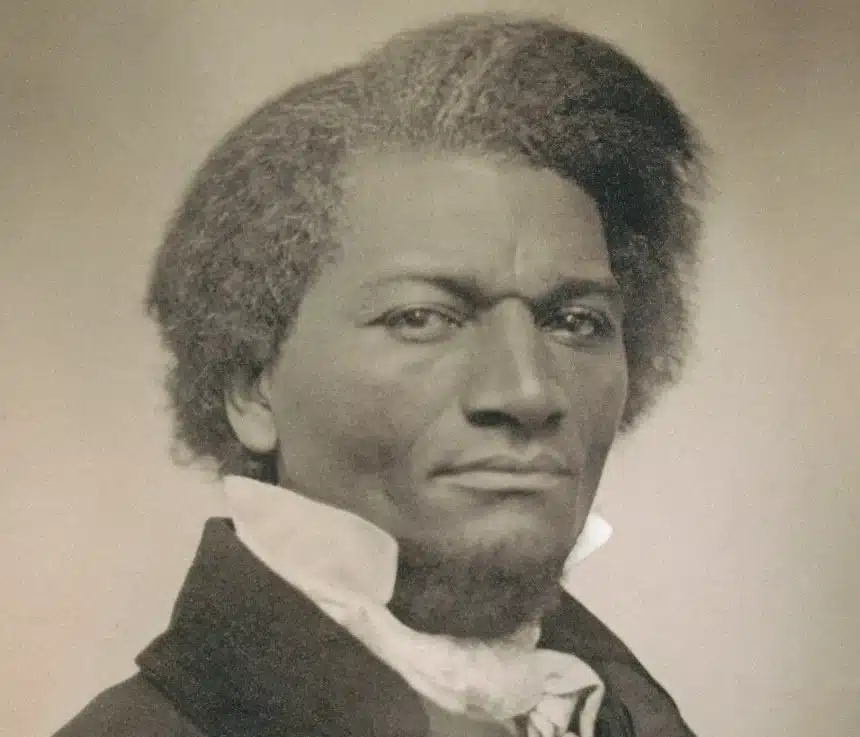Slave Narratives: A Literary Genesis
Slave narratives emerged as a critical genre within African-American literature, transcending the boundaries of mere autobiographical recounting to embed themselves as pillars of American cultural and literary identity. In the nineteenth century, these narratives offered a platform for voices that had been forcibly silenced, presenting firsthand experiences of slavery’s cruelty and inhumanity. By focusing on the lives of Frederick Douglass and William W. Brown, it becomes evident how these narratives were instrumental not just in illuminating the abolitionist cause but also in redefining American literary traditions.
Frederick Douglass and William W. Brown’s narratives extended beyond their personal liberation to challenge the literary status quo, integrating the enslaved’s experiences into the broader American narrative. Their accounts, rich in detail and emotional depth, served as a beacon for the abolitionist movement, highlighting the resilience and agency of those enslaved. Through their writings, Douglass and Brown did not merely document their lives; they contributed to a new understanding of American literature, one that recognized the critical role of African-American experiences in shaping national identity.
Slave narratives navigated the delicate balance between serving a political cause and asserting their literary value.
The influence of slave narratives on American literature was profound, setting the stage for the evolution of a distinct African-American literary tradition. Douglass and Brown, through their articulate and compelling narratives, initiated a dialogue on freedom, identity, and human rights that challenged readers to rethink prevailing narratives. In doing so, they not only carved a space for African-American voices within American literature but also underscored the transformative power of storytelling in the pursuit of justice and equality.
The Ideological and Literary Confluence
The intricate relationship between ideology and literature within slave narratives reveals a dynamic interplay that significantly influenced the genre’s development and reception. Frederick Douglass and William W. Brown’s autobiographies exemplify how slave narratives navigated the delicate balance between serving a political cause and asserting their literary value. These texts were not merely platforms for abolitionist rhetoric; they were carefully crafted works that utilized narrative techniques and literary devices to enhance their impact and broaden their appeal.
The legacy of slave narratives in American literature is indelibly linked to this fusion of advocacy and artistry.
In crafting their narratives, Douglass and Brown were acutely aware of their dual audience: those sympathetic to the abolitionist cause and a broader readership seeking literary merit. This awareness shaped their narratives, imbuing them with a richness and complexity that transcended straightforward polemic. By employing elements such as dramatic irony, vivid imagery, and the development of a distinct narrative voice, they were able to engage readers on multiple levels, fostering a deeper emotional connection to the experiences depicted.
Moreover, the strategic use of these literary elements did not diminish the narratives’ ideological impact. On the contrary, it amplified it, allowing Douglass and Brown to communicate the abolitionist message more effectively. Their ability to blend political advocacy with literary artistry challenged the notion that slave narratives were of interest solely for their documentary value, positioning them instead as significant contributions to American literature.
This confluence of ideology and literature within slave narratives underscores their role not just as historical documents but as complex texts that navigate the interstices of personal experience, political activism, and literary expression. Douglass and Brown’s narratives, therefore, stand as testament to the genre’s capacity to influence both the course of American literature and the trajectory of social change.
Artistry Amidst Advocacy
The profound impact of slave narratives on American literature can be ascribed not only to their ideological undertones but also to the distinctive literary artistry they embodied. The narratives crafted by Frederick Douglass and William W. Brown stand as exemplars of how enslaved individuals utilized the power of language, narrative structure, and thematic exploration to forge a genre that resonated deeply with readers across various spectrums.
In examining the artistry within these narratives, one observes a deliberate and skillful manipulation of language that transforms mere accounts of suffering into compelling narratives of human endurance and resistance. The strategic deployment of rhetorical devices, such as metaphor and personification, allowed Douglass and Brown to convey the complex emotions and stark realities of slavery, making their experiences palpable to the reader.
Furthermore, the narrative structure of these autobiographies, often weaving together personal anecdotes with broader reflections on the condition of slavery, enhanced their literary and persuasive impact. This structure facilitated a dialogue between the personal and the political, inviting readers to engage with the narrative on multiple levels.
Their narratives significantly transformed the portrayal of African-American identity.
Thematic depth is another hallmark of their narratives, exploring themes of identity, freedom, and human dignity. These themes are not merely backdrop but are integral to the narrative’s progression and its ability to engage readers in a conversation about the moral and social implications of slavery.
The legacy of slave narratives in American literature is indelibly linked to this fusion of advocacy and artistry. Douglass and Brown, through their masterful storytelling, did not just aim to inform but to move their audience, leveraging their literary prowess to advocate for abolition. It is this combination of political purpose and literary refinement that has ensured the continued relevance and influence of slave narratives, underscoring their role not only as vehicles of emancipation but as enduring works of art.
Redefining Representation
The narratives of Frederick Douglass and William W. Brown significantly transformed the portrayal of African-American identity, challenging and dismantling the stereotypes perpetuated by the institution of slavery. Through their detailed recounting of personal experiences, Douglass and Brown provided a counter-narrative that highlighted the complexity, resilience, and humanity of enslaved individuals. Their narratives did not merely serve as autobiographical accounts; they were instrumental in challenging the dehumanizing portrayals common in pro-slavery discourse.
By foregrounding their intellectual and moral capacities, Douglass and Brown’s works contested the prevailing notions of racial inferiority. Their ability to articulate their thoughts and experiences in such a powerful and eloquent manner offered irrefutable evidence of their humanity and intellect, contributing to a broader discourse on race that questioned the foundations of slavery itself.
Furthermore, the legacy of slave narratives extends to their role in shaping a more empathetic and inclusive understanding of American identity. By bearing witness to the atrocities of slavery while also showcasing the indomitable spirit of those who endured, these narratives challenge us to confront the injustices of our past and present. In doing so, they inspire us to work towards a future where equality and justice are not just ideals but realities for all.
Furthermore, these narratives extended their critique to include issues of gender, illustrating how the system of slavery inflicted unique sufferings on women. Through their accounts, the authors brought to light the double oppression of enslaved women, thereby enriching the abolitionist discourse with a gendered perspective that called for a more inclusive approach to human rights and dignity.
By integrating personal narrative with broader political critique, Douglass and Brown played a pivotal role in redefining American identity. Their narratives fostered a more inclusive understanding of what it meant to be American, challenging the nation to live up to its professed ideals of freedom and equality. In doing so, they laid the groundwork for future generations of African-American writers and activists to continue the struggle for representation and justice, ensuring that their contributions to American literature and politics would resonate far beyond their own lifetimes.
Legacy and Liberation
The enduring impact of slave narratives on American culture and thought cannot be overstated. These narratives, while rooted in the specific historical context of slavery, have transcended their time to become timeless beacons of resilience, resistance, and the quest for human dignity. As both historical documents and literary masterpieces, the works of Frederick Douglass, William W. Brown, and their contemporaries continue to resonate, offering insights into the struggles and triumphs of those who fought not just for their own liberation but for the broader ideals of freedom and equality.
The relevance of these narratives in today’s society underscores their profound impact on America’s collective conscience. They not only provide a window into the lived experiences of enslaved individuals but also serve as a moral compass, urging us to reflect on issues of race, identity, and justice. The narratives’ exploration of these themes contributes to ongoing discussions and movements for social change, reminding us of the importance of storytelling in the fight against oppression.
In conclusion, the legacy of slave narratives is one of liberation—not only from the chains of bondage but from the chains of ignorance and indifference. They continue to educate, inspire, and challenge us, embodying the enduring power of the human spirit to overcome adversity and advocate for a more just and compassionate world.
Adapted from an academic study for a wider audience, under license CC BY 4.0












